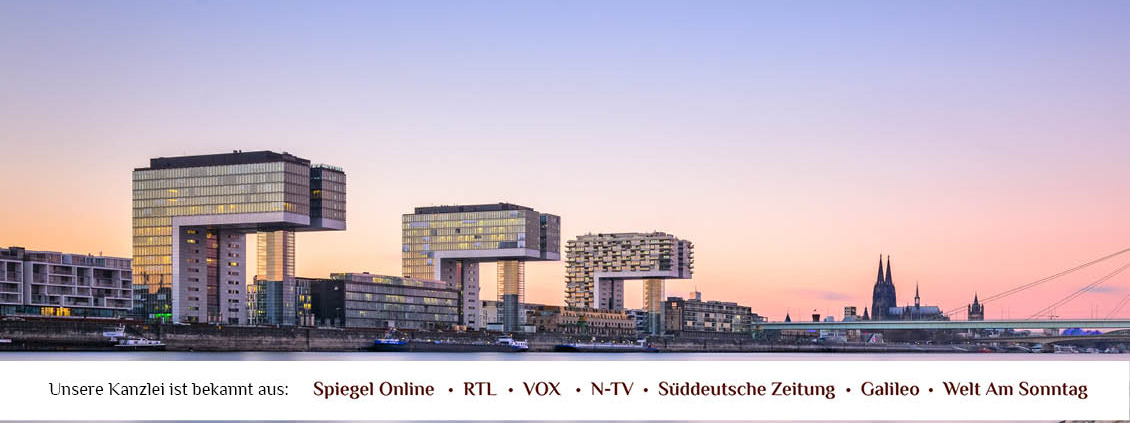GMBH FORMATION IN GERMANY
✔ Free initial consultation
✔ All-around support – at a fixed price
✔ More than 20,000 checked up cases in corporate law
GmbH formation in Germany – setting up a German limited liability company
So you want to form a GmbH, in order to benefit from a reputable company form and exclude your personal liability? With years of experience of supervising company formations, we know the formation process inside out and can form your GmbH. Fast, legally secure and at a fixed price. Your bespoke GmbH articles of association will come straight from a lawyer.
If you are asking yourself questions such as “How do I set up a GmbH?”, “What will it cost me to form a GmbH?” or “When is a GmbH worthwhile from a tax point of view?”, you will find plenty of answers and tips on this page
- Shareholders of the GmbH are released from personal liability, reducing their entrepreneurial risk
- The legal form of the GmbH has a good reputation in legal dealings, due to its share capital requirement of €12,500 or €25,000
- Approximately 40% of all new companies formed in Germany are GmbHs (source: German Federal Statistical Office)
- In total, there are more than 15 million GmbHs in Germany
Contents
Process, information & packages
Taxes, costs, foreign elements
Taxes, costs, foreign elements
Online GmbH formation
Andre Kraus, lawyer and founder of the KRAUS GHENDLER RUVINSKIJ law firm, is your contact in matters of company formation, trade mark law, reputation protection and corporate law.

Online company formation or in-person appointment
You can form a company directly online, book a free initial consultation online or send us a message.

Free initial consultation
You will receive a comprehensive initial consultation for the formation of your GmbH free of charge. During this meeting, we will clarify any open questions you may have and advise you on the most important basic issues in company formation, such as the right legal form or the costs and procedure involved in forming a company.

Forming your company
We start by forming your company. We will support you, from providing legal advice on forming a company, drafting tailored articles of association, arranging a notary appointment and entering your company in the commercial register, to registering a trademark, drawing up your application for tax and business registration, and handling your bookkeeping.
Overview GmbH formation in Germany
The GmbH is the best established form of company
The GmbH – short for Gesellschaft mit begrenzter Haftung (limited liability company) – is Germany’s most established legal form. It was introduced as early as 1892 and is well-known to both businesspeople and consumers in Germany and now in many EU countries. It is therefore not without good reason that it belongs to the standard repertoire of the German start-up scene.
Due to its good reputation, the higher associated share capital and the limitation of liability for shareholders, the GmbH offers a good opportunity to form a company in Germany.

Overview GmbH formation
- The GmbH limits the personal liability of its founders.
- It is a reputable company form, recognised both in Germany and abroad.
- 40% of all new companies formed are GmbHs – there are more than 1.15m GmbHs in Germany.
- A GmbH can be formed by one person working alone, or by a team of several people.
- We guide you through the whole process of forming a GmbH, from a free initial consultation, to drafting the articles of association, to entry into the commercial register, all for a fixed price.
Our packages
GmbH formation: What is a GmbH?
A Gesellschaft mit beschränkter Haftung, commonly abbreviated as GmbH, has been preserved in German and European business transactions for decades since its introduction in 1892. It is the absolute classic company form. The GmbH was introduced to give entrepreneurs and founders the opportunity to take on entrepreneurial risk without endangering all their private assets.
Definition of a GmbH
The GmbH is an independent legal form: As a corporation it is a legal person (Section 13 GmbHG (GmbH Act)). For you as a founder, this means that you are not liable to cover a GmbH’s liabilities using your private assets. Although the exclusion of liability could leave your creditors empty-handed, it enjoys a high level of trust. Due to the high share capital requirement of €25,000, the founder is assumed to have a good credit rating.
Liability of the GmbH
The GmbH makes it possible for you as an entrepreneur to choose a company form with limited liability. You are not generally liable to cover the GmbH’s debts using your private assets. Liability is assumed by the GmbH.
Exceptions to the GmbH’s limitation of liability
There are exceptions to this rule:
- Personal guarantees – If a shareholder or managing director is a guarantor for loans to the GmbH or other liabilities, they are personally liable for these liabilities.
- Criminal conduct by the managing director – If the managing director of the GmbH inflicts losses on one of its creditors through criminal conduct such as tax evasion, fraud or embezzlement, they are personally liable for these losses.
- Managing director liability – Capital law provisions, disregard of the limits of the power of representation or the instructions of the shareholders, culpable breach of the legal obligations of the GmbH.
In summary, the managing director is liable if they culpably violate their duties of proper management. The GmbH is liable for all transactions within the scope of its business. For example, the GmbH is also liable for debts arising from risky transactions; they are part of the operation of a company if there are good prospects for profit.

The GmbH is a legal person
The GmbH is a corporation and thus a legal person (Section 13 GmbHG). It concludes contracts independently and can buy, sell, rent and lease. If, for example, employees are hired to work for the GmbH, their employer is not the individual shareholder but the GmbH itself.
Your own company name
Like any other company, the GmbH has its own company name. This is followed by the words “Gesellschaft mit beschränkter Haftung (GmbH)”. In this way, the shareholders remain in the background and your name does not appear on business letters or the legal notice.
Formation as a one-person GmbH or in a team
The GmbH can be formed by one founder working alone, as a “one-person GmbH”. Of course, a GmbH can also be formed by a team of several founders.
Managing directors
Furthermore, a GmbH is managed by at least one managing director (Section 35 GmbHG). A managing director is either one of the shareholders (in-house managing director) or employed by the GmbH (external managing director).
GmbH founding by a lawyer
✔ CHEAP✔ FAST✔ LEGALLY SECURE
Over
checked cases
Open questions? – Just call us:
(Mo. – So. from 9am to 22pm / NATIONWIDE – German landline)
Aims of GmbH formation
1. Aim
A reputable company form
The German GmbH has been preserved in transactions across decades. This applies to business partners and customers in Germany, as well as to your business relations in the EU. Due to its high share capital requirements of €12,500 or €25,000, the founder is assumed to have a good credit rating.
2. Aim
Limitation of your personal liability
As a founder of a GmbH, you benefit from the limitation of personal liability with your assets. You receive a Gesellschaft mit beschränkter Haftung, which is generally liable for its own liabilities with its own assets
3. Aim
Legally secure formation by a lawyer
Completely excluding your personal liability means forming your company in a legally secure way. To this end, the entire formation process is handled by a lawyer, from advice on formation and the drafting of bespoke articles of association, to entry into the commercial register. This ensures that legal errors, which could cost you a lot of time and expense later, are avoided.
4. Aim
Hardly any formalities
Forming a GmbH with us allows you to skip most of the formalities of the formation process. Our team of lawyers is at your disposal during the entire formation process
Vorbereitung der GmbH Gründung
Die Gründung einer Kapitalgesellschaft bedarf einer umfangreichen und präzisen Planung vorab. Schon vor Beginn des Gründungsprozesses sollten Sie sich ausreichend Zeit nehmen, um alles zu planen. Eine nachträgliche Änderung der Gesellschaftssatzung kann teuer und umständlich werden. Schlimmer ist es sogar, wenn nur ein Mustervertrag benutzt wird, und im Nachhinein Schwierigkeiten auftreten.
Daher sollten Sie in der Vorbereitung 4 wichtige Schritte beachten.
Schritt 1 - Erstellung des Businessplans
Erstellen Sie zunächst einen Businessplan, um Ihr Vorhaben realistisch und umfänglich einzuschätzen.
Schritt 2 - Finanzierung und Marketing
Stellen Sie sicher, dass Ihre Finanzierung und der Vertrieb stehen. Beginnen sie frühestmöglich mit der Akquise für Ihr Produkt / Ihre Dienstleistung.
Schritt 2 - Finanzierung und Marketing
Schritt 3 - Beachtung der rechtlichen Grundfragen
Machen Sie sich Gedanken zu den rechtlichen Grundfragen Ihrer Gründung.
Schritt 4 - Firmennamen aussuchen
Schließlich sollten Sie sich entscheiden, wie Ihre GmbH heißen soll.
Schritt 4 - Firmennamen aussuchen
Forming a GmbH in 9 steps – Process step by step
Overview: Process of forming a GmbH
- Free initial consultation
- Legal formation advice
- Checking the company name
- Drawing up the articles of association
- Notarisation meeting
- Opening the business account, paying in the initial contribution
- Entry into the commercial register
- Final consultation
- Tax and business registration

GmbH founding by a lawyer
✔ CHEAP✔ FAST✔ LEGALLY SECURE
Over
checked cases
Open questions? – Just call us:
(Mo. – So. from 9am to 22pm / NATIONWIDE – German landline)
Course of GmbH formation
Step 1 – Free initial consultation
Before forming a company, it is important to clarify which legal form is the right one for you. Would you like your company to be formed as cheaply as possible while still excluding personal liability? If so, forming a UG could be the best option for you. If you are able to make a higher contribution, a GmbH would also be an option. The choice of legal form may be influenced by external factors, administrative burden and a number of other issues in addition to liability. These will be dealt with in the free initial assessment.
Step 2 – Legal formation advice
If the GmbH is your preferred legal form, you will need to consult extensively with a lawyer.. They will then guide you through the formation process from start to finish. First, they will draw up your bespoke formation plan. This avoids subsequent changes after the GmbH has been formed, which would cost you time and money. The lawyer will then answer any questions you may have. By doing this, the consultation takes into account the specific aspects of your situation, allowing us to adapt the company formation documents to your needs.
Step 2 – Legal formation advice
Step 3 – Checking the company name
Immediately after receiving our brief, we will check your company name with the competent IHK (Chamber of Industry and Commerce). This ensures that it is correct under company law, and speeds up the process of entering the GmbH into the commercial register.
Step 4 – Drawing up the articles of association
After the formation consultation, articles of association or a statute will be drawn up for your GmbH, based on our discussions. To save time, a “standard record” is often used for formation (Annex to Section 2 (1a) GmbHG). This will also be adapted to your individual case.
Step 4 – Drawing up the articles of association
Step 5 – Notarisation meeting
After drawing up the articles of association and all the other documents, we will arrange a notarisation appointment with a notary of your choice. You will receive a checklist for preparation and will not need to bring any documents other than your personal ID.
Step 6 – Opening the business account, paying in the initial contribution
After the notary appointment, you open an account for the GmbH at a bank of your choice and pay in the share capital. We will prepare you for the bank appointment (checklist, power of attorney). Pay in the initial contribution at the appointment.
Step 6 – Opening the business account, paying in the initial contribution
Step 7 - Entry into the commercial register
Your GmbH will then be entered into the commercial register (Section 7 GmbHG). From now on, you will cease to be personally liable.
Step 8 – Final consultation
- In most cases, many questions only arise once the formation process is underway. These can be dealt with at the final appointment. We also provide our clients with the most important model contracts for their formation (managing director contract, contracts of employment, contract for freelance work, license agreements, etc.). During the final consultation, you will have the opportunity to ask questions about the contracts. This allows us to adapt them to your individual needs.
Step 8 – Final consultation
Step 9 – Tax and business registration
Tax and business registration is prepared on the basis of the final consultation.
Transparency register
As of 2019, companies must be entered in the federal transparency register under the Geldwäschegesetz (GwG; German Money Laundering Act) of 2017. This should make it possible to recognise the persons economically responsible for a company at a glance. The first and last names, dates of birth, places of residence and the nature and extent of the economic interest of the beneficial owners must be entered. Registration may be waived if this information can already be retrieved from the commercial register or another public register.
If necessary, your company will be entered in the transparency register after notarisation.
GmbH founding by a lawyer
✔ CHEAP✔ FAST✔ LEGALLY SECURE
Over
checked cases
Open questions? – Just call us:
(Mo. – So. from 9am to 22pm / NATIONWIDE – German landline)
Advantages and disadvantages of GmbH formation
Benefits of GmbH formation:
✓ Limited liability
✓ GmbH boosts your business
✓ Own company name
✓ Tax savings
✓ Simple sale
✓ Free choice of managing director
✓ Option of a One-Person-GmbH
✓ Advantages in hiring employees

Advantages of GmbH formation
EXCLUSION OF YOUR PERSONAL LIABILITY
As a rule, your private assets as a shareholder remain safe. The company alone is responsible for its liabilities (Section 13 GmbHG). This does not normally change, even if the GmbH becomes insolvent
THE GMBH FORM BOOSTS YOUR BUSINESS
Although the exclusion of liability could leave your creditors empty-handed, the GmbH enjoys a good reputation. The German GmbH has been preserved in transactions across decades, both in Germany and in the EU. Most business partners are aware of the contribution requirement of more than €25,000 and assume that the company owner is serious and professional. A GmbH is an especially welcome business partner for companies in the B2B sector. The GmbH has an image advantage over a UG (entrepreneurial company), a UG & Co. KG (entrepreneurial limited partnership), a sole proprietorship, a GbR (Gesellschaft des bürgerlichen Rechts), an OHG (general partnership) and especially a limited company. Your customers will get a particularly good impression if you change form from a Ltd. company, UG, Einzelfirma or GbR.
OWN COMPANY NAME
The GmbH acts independently in legal dealings. Transactions are not concluded in your name, but rather under the company name of the GmbH. If you are not the managing director, your name will not appear on invoices or the legal notice. This ensures your privacy is protected.
TAX SAVINGS ON INVESTMENTS
You can save money on taxes with a GmbH. This is because the GmbH is, unlike, for example, a sole proprietorship or the GbR, a corporation and, as such, is subject to corporation tax at a rate of 15% instead of income tax at >20%, which otherwise applies. If you wish to initially retain profits in the GmbH in order to make investments in a subsequent financial year, you will not be taxed at the full income tax rate from year to year.
FORMING HIDDEN RESERVES
Another way for you to save taxes with the GmbH is by forming hidden reserves. These are reserves that are not shown on the balance sheet, for example, because the book value of a property you have contributed is less than its current value.
SIMPLE SALE
If you want to sell your GmbH, this is far less complicated than selling a sole proprietorship. You simply sell all or some of your shares in the company (“share deal”). You do not have to sell certain components of the company such as goods, goodwill, etc. individually (“asset deal”).
FREE CHOICE OF MANAGING DIRECTORS
As a GmbH shareholder, you do not have to assume the duties of a managing director and the liability that goes with it. If you wish, you can easily appoint an external managing director for your GmbH.
OPTION OF A ONE-PERSON GMBH
With a GmbH, you do not need any further shareholders. This way, you can form a GmbH alone, thus protecting your private assets.
ADVANTAGES IN HIRING EMPLOYEES
When a new GmbH is formed, you can hire employees for a fixed period of four years. This is the legislator’s way of accommodating founders. Normally, such fixed-term contracts of employment are limited to two years.
Disadvantages of GmbH formation
COSTLY FORMATION RELATIVE TO UG FORMATION
The formation of a GmbH requires a capital contribution of €25,000 or €12,500.
Alternative: If a founder lacks these means, they can form an UG. They will receive a company that excludes liability, which can be formed with only €1 of share capital. However, the UG has an image disadvantage compared to a GmbH.
TAX-INTENSIVE PARTICIPATION OF INVESTORS OR FAMILY MEMBERS RELATIVE TO GMBH & CO. KG FORMATION
If you want to involve investors or family members as shareholders in the GmbH, they would not be able to participate in the company’s success in a tax-privileged way through a managing director’s salary. The profits would have to be subject to corporation tax, trade tax, solidarity surcharge and capital gains tax. The overall tax burden would be significantly higher than the income tax that has to be paid on the managing director’s salary.
Alternative: With aGmbH & Co KG all shareholders are taxed as limited partners at their individual income tax rate. The disadvantage here is the higher start-up and administrative costs of a GmbH & Co. KG. These costs are incurred twice over in each case because two companies (GmbH and KG) have to be established and managed. The GmbH & Co KG is therefore most suitable for companies that are already operating and have a calculable income.
As an alternative to the GmbH & Co. KG, it is therefore also possible to choose a dormant investment by investors or family members, or a shareholder loan to the GmbH. It should also be borne in mind that in the first few years most profits are set aside for investment and not distributed. Here, the GmbH offers advantages.
CHANGE OF SHAREHOLDERS ONLY AFTER NOTARISED AMENDMENT OF THE ARTICLES OF ASSOCIATION RELATIVE TO GMBH & CO. KG FORMATION
If the shareholders of a GmbH change, the articles of association are supplemented by the new shareholder at the notary’s office.
Alternative: In the case of the GmbH & Co. KG, the articles of association can be amended without notarisation. The commercial register application alone is changed by a notary, but this is less expensive than changing the articles of association of a GmbH. Here, too, the savings made at the notary’s office are offset by the doubled costs of the GmbH & Co. KG, so, for this reason alone, it is rarely used and a GmbH is usually formed.
NO MEANINGFUL ACTIVITY IN THE NON-PROFIT SECTOR RELATIVE TO GGMBH FORMATION
The profits of a GmbH are of a commercial nature and are fully taxable. If you set up in the non-profit or charitable sector and still want to exclude your liability, you would have to tax all your income and would not be able to issue tax-deductible donation receipts to your donors.
Alternative: A gGmbH (gemeinnützige Gesellschaft mit begrenzter Haftung or charitable limited liability company) offers you the possibility of tax exemption and the authority to issue “donation receipts” to donors or contributors. This means that any profits do not have to be taxed. Instead, they are set aside for use for the special company purpose. At the same time, donors can be encouraged to make tax-efficient donations. In contrast to an association, a gGmbH can also be formed by one person working alone. Seven founding members are not required. The disadvantage is that no part of any profit may be paid out to shareholders. The founder only receives an appropriate managing director’s salary.
THREAT TO SEVERAL BRANCHES OF A GMBH IN THE EVENT OF A CRISIS IN A SINGLE BRANCH RELATIVE TO HOLDING GMBH OR HOLDING STRUCTURE
If a GmbH operates several different lines of business, there is a risk that a financially crisis-ridden line of business could put the entire GmbH at risk of insolvency. Its losses are attributed to the other branches of the GmbH. The owner may be at risk of a “total loss”.
Alternative: To avoid this risk, a holding company structure is established. To this end, a holding company is first set up as a “parent company”, at the price and after the expiry of a GmbH formation. After this, the parent company sets up a subsidiary company for each of its branches of business. In turn, we carry out a coordinated GmbH formation for each of them. If one of the subsidiaries enters a financial crisis, this can then be ended independently by an insolvency application or other means. The remaining subsidiaries can continue their business without restriction. The creation of a holding company structure makes sense if you have several business areas, one of the business areas is running successfully or a large investment is available for the operation of several companies. In such a case, it is worth investing in several GmbHs with a holding structure to protect the entire company. A GmbH & Co. KG is often formed as a “parent company”, to give the participating founders the advantage of a tax-efficient withdrawal. We therefore almost always equip the GmbHs we form with the option of later use as a holding company or parent GmbH (extended company purpose). The disadvantage of the holding company structure is that its financial start-up and administrative costs are at least twice as high
HIGH TAX RATE ON SALE OF GMBH SHARES AT EXIT RELATIVE TO HOLDING GMBH, GMBH & CO. KG OR HOLDING STRUCTURE
If shares in a GmbH are sold, the capital gain is taxed at 60%, according to the partial income method.
Alternative: To avoid this risk, a holding company structure is established. The holding company that is then formed must tax a capital gain at a rate of only 5% (Section 8b (3) or (5) KStG (German Corporation Tax Act) – only 5% is regarded as GmbH expenses that may not be deducted as business expenses). However, this only applies as long as the proceeds remain in the holding company, for example, in order to make another investment or to become active in another line of business. The holding company can be formed at the beginning if the founders have a fixed exit plan. If the idea of selling only emerges later, a holding structure can also be established at a later date, by means of a “share swap”. The holding GmbH receives shares in the current GmbH in exchange for shares in the holding GmbH. After that, the holding GmbH sells the shares in the GmbH in a tax-efficient way. The disadvantage is that its financial start-up and administrative costs are at least twice as high. A further disadvantage is the high tax rate that applies when the proceeds from the holding company are paid out to its owner. It is possible to reduce this rate by forming a holding GmbH & Co. KG, but this in itself requires double the formation and administrative expenses.
Duration of GmbH formation
1 - 2 days
Formation advice, articles of association
Legal formation advice and drawing up articles of association
1 - 3 days
Notarisation appointment
Arranging a notarisation appointment
1 - 3 days
1 - 2 days
Initial contribution
Opening business account, paying in the initial contribution
5 - 14 days
Commercial register
Entry into the commercial register
5 - 14 days
8 - 21 days
Total duration
Total duration- from Legal formation advice to entry into the commercial register
The minimum formation time of a UG is 8 days from the first telephone call to the entry in the commercial register. On average, the formation of a UG takes about 21 days – from the initial consultation to the registration of the UG in the commercial register.
GmbH founding by a lawyer
✔ CHEAP✔ FAST✔ LEGALLY SECURE
Over
checked cases
Open questions? – Just call us:
(Mo. – So. from 9am to 22pm / NATIONWIDE – German landline)
Taxes and share capital of the GmbH
A GmbH is subject to corporation tax, solidarity surcharge, trade tax, VAT and wage tax.
The shareholder is subject to capital gains tax.
The most tax-efficient way to profit from the GmbH’s revenue is to pay out a managing director’s salary. The owner-manager’s salary is only subject to individual income tax. Attention is generally paid to ensuring that the GmbH’s articles of association is structured in such a way that it is compatible with social security.
Corporation tax
The tax on the GmbH’s income is called corporation tax. It currently stands at 15%. The low rate of corporation tax relative to income tax makes the GmbH favourable if you wish to retain profits in the company, in order to invest them in the future. Unlike a sole proprietorship or GbR, for example, they are not subject to income tax from year to year. In combination with the usual skimming of profits in the GmbH’s managing director’s salary, the GmbH thus offers the advantage of a favourable revenue reserve option.
Solidarity surcharge
The solidarity surcharge is 5.5% of corporation tax. This is 0.825 percentage points.
Trade tax
It should be borne in mind that trade tax often has to be paid in addition to the relatively low corporation tax rate. The amount of the trade tax depends on the location of the GmbH’s registered office. For example, the assessment rate for trade tax is 475% in Cologne and 410% in Berlin.
Value added tax
If the GmbH does not make use of the small business exemption (which is permissible), it will pay 19% value added tax (VAT). In some cases, the VAT will be 7%.
Wage tax
If the GmbH hires employees subject to social insurance contributions, it also pays the wage tax. This may be supplemented by church tax.
Capital gains tax
Even though the GmbH’s “income” has already been subject to corporation tax, solidarity surcharge, etc., any profits distributed to shareholders are subject to capital gains tax (25%). When the solidarity surcharge is added, this amounts to 26.5%. As long as the profits are not distributed, no capital gains tax need be paid.
Tax-efficient skimming off of profits in the managing director’s salary
The fiscally advantageous way to participate in the GmbH’s profits is by paying a managing director’s salary. This is only subject to income tax. This is a more favourable arrangement for the GmbH managing director than withdrawing profits as a shareholder. And since the managing director’s salary reduces the GmbH’s profits, the GmbH pays less tax overall. When designing the GmbH’s articles of association, attention is paid to the design of a blocking minority for the managing partner, in order to enable the managing director’s salary to be paid without social insurance contributions.
Tax and business registration
Before a GmbH can start its business activity, it must register for tax with the tax office. We do this for you after formation, so that you can start your business as soon as possible.
You must register your business with the tax office. If you pursue a trade that is subject to special regulation to protect the public, a special permit is required in accordance with Section 34c GewO (German Industrial Code). We know what we’re doing and take care of registration for you!
Tax form – your registration with the tax office
After we have entered your GmbH in the commercial register, we register you for tax with the tax office. Only after registration can you issue invoices and officially start your business. We will register you by filling in the tax form. The earlier the form is handed in, the sooner your company can start its business activities. We will therefore register you as quickly as possible!
Tax tip: Formation costs not always fully deductible
A GmbH’s formation costs are only partially tax-deductible. If you form your company using a standard record, the costs may not exceed €300. However, if you prefer tailored articles of association and use this as the basis for tax-deductibility, the full amount is tax-deductible.
Commercial registration is obligatory
Erade registration must be carried out. Registration is usually uncomplicated and costs between €10 and €60. A simple letter will do. We take care of registration for you after formation!
Further permits may be required
Certain types of business require an additional permit. A care facility and a nursery are good non-profit examples. A special permit in accordance with Section 34c GewO is required to protect the public. We know the process and take care of the organisation for you!
€25,000 or €12,500 capital contribution required to form a GmbH
A GmbH can be formed and entered into the commercial register as soon as a contribution of €12,500 is paid. The founders then continue to be personally liable until the contribution has been completed with another €12,500.
The formation of a GmbH with €25,000 rules out any personal liability on the part of shareholders.
In the case of a non-cash formation, property can replace the monetary contribution. For example, if a car with a value of €15,000 is contributed in kind, only a further €10,000 need be contributed to establish a GmbH and acquire full exemption from liability (mixed contribution in kind).
The contribution is paid in as soon as the notarisation appointment has taken place and the account has been opened. After it has been paid in, the contribution can be issued in full by the GmbH. Many GmbH founders think that they have to keep €25,000 in the GmbH account, but this is a widespread misconception.
How large should the initial contribution to a GmbH be? €12,500 or €25,000?
The share capital of a GmbH amounts to €25,000 according to Section 5 GmbHG. This amount is made up of the shareholders’ capital contributions, which can vary in amount. In order to be able to form a GmbH, you must make a contribution of at least €12,500 (Section 7 (2) GmbHG). In this case, all shareholders remain personally liable for the difference of €12,500 until €25,000 has been paid in.
What types of contribution can be made to a GmbH? Monetary contribution or contribution in kind?
In addition to the two share capital amounts of €12,500 or €25,000, the manner of providing the share capital can also vary.
The following forms of contribution are available:
- Monetary contributions, also called cash contributions.
- Contributions in kind. Here, shareholders make their contribution in the form of valuable items or rights. These may be machines, real estate, claims against third parties or trademark or copyright. A problem that often delays formation is the valuation of the contributions in kind. Another area in which we can advise you is “hidden contributions in kind”.
- Mixed contributions. Cash contributions and contributions in kind can also be combined. When doing this, a part is contributed in money and a part in property or rights.
To what extent should contributions be paid?
- Cash contributions do not have to be paid in full. Rather, it is sufficient to contribute only one half.
- Contributions in kind must be made in full.
- In the case of mixed contributions, a quarter of the money and all the property must be contributed.
- To enter a GmbH in the commercial register requires contributions of at least €12,500 (monetary contributions and possible contributions in kind).
When should contributions be paid?
The decisive point in time for the provision of the contributions is the entry of the GmbH into the commercial register.
Can the initial contribution be spent?
Many GmbH founders think that you need to keep the €12,500 or €25,000 contribution in the GmbH account. This is a common misconception. The entire contribution can be spent on the business of the GmbH. The contribution is the founders’ investment in the business, which is intended to cover the period until the business breaks even. Should a liquidity bottleneck arise, the founders can include a higher contribution in their plans from the outset, or provide the GmbH with more capital in the form of a shareholder loan.
GmbH founding by a lawyer
✔ CHEAP✔ FAST✔ LEGALLY SECURE
Over
checked cases
Open questions? – Just call us:
(Mo. – So. from 9am to 22pm / NATIONWIDE – German landline)
GmbH formation with foreign elements
More and more formations in Germany are not purely domestic. There are special features to be considered, both for formations from abroad and for formations by foreign nationals.
Formation of a GmbH from abroad
The formation of a GmbH from abroad is becoming more and more common. In most cases, the founders in question are German nationals who no longer live in Germany, but still want to do business here. This is how the formation process works:
- If you are forming a company from abroad, we represent you locally.
- For this purpose, a formation power of attorney will be prepared and sent to you.
- This power of attorney will be notarised in your country of residence. The notarisation usually takes place in a German embassy or consulate. You can find a list of German agencies abroad here.
- You send us the original authenticated power of attorney.
- Then we will arrange the notarisation appointment for you with a notary public in Germany.
- The instruction and commercial register entry will be sent to you. The documents will be authenticated by a German ambassador. A second appointment will be necessary.
- There, we will enter your GmbH into the German commercial register.
- In case of “Rechtssicher PLUS” formation, we also take care of the business and tax registration. If you commission us separately to do so, we also represent you at the personal visit to the trade office.
Formation of a GmbH by foreigner nationals
Just as relevant is the formation of German companies by founders who are not German citizens.
Formation by non-EU citizens
In principle, you do not have to be German to form a German company. Anyone can form a GmbH. Nevertheless, there are some things to consider:
- The sole official language for German notaries is German. If you are not able to speak and understand German fluently, you are obliged to hire an interpreter for the notarisation appointment.
- In principle, non-EU citizens can also become managing directors of a German company, even if they do not have a residence permit and are not domiciled in Germany (OLG Düsseldorf (Düsseldorf Higher Regional Court), ref.: 3 Wx 85/09 and OLG Zweibrücken (Zweibrücken Higher Regional Court) decision of 09/09/2010, 3 W 70/10).
- In our experience, however, the managing director of the company needs a residence permit in Germany to register with the trade office.
Formation by a foreign company
When a GmbH is formed by foreign companies, there are usually three options for how to proceed:
1st option: Copy of the original formation documents and an extract from the commercial register regarding the formation of your company.
These are submitted to the court of registration. This is the simplest and cheapest way of forming a company, but it usually only works for companies from Switzerland or Austria. The registry court must be able to recognise the power of representation from the documents.
2nd option: Translated and authenticated formation documents and extract from the commercial register with apostille.
Requesting an apostille through the authorities is lengthy and cumbersome, but enables the registration courts to verify your formation documents in a legally secure manner. We usually recommend this option.
3rd option: Expert opinion from a foreign notary public
In some cases, mostly in the case of companies from countries with Anglo-Saxon legal systems, the registry courts object to formation with an apostille. Then, an expert opinion from a foreign notary is requested to confirm the legality of the formation documents. This procedure is very expensive and should only be performed in an emergency.
Foreigners as GmbH managing directors – is that possible?
No special requirements regarding nationality
Foreigners can be managing directors of a German GmbH, even if they do not live in Germany.
The GmbH Act does not list any special requirements on the managing director’s nationality or place of residence.
Challenges in day-to-day business
However, problems can arise in day-to-day business. The managing director must actually be in a position to fulfil his legal duties.
According to the GmbH Act, the managing director must, for example, ensure that the company’s accounts are properly kept and that the capital is preserved. He must also be able to comply with a possible obligation to file for insolvency at any time.
Regardless of where the managing director is, however, all this is possible with good organization and the use of modern telecommunications and IT.
Non-EU foreigners may need entry permit
Another question is whether the managing director must be able to come to Germany at any time to make declarations or take actions. Within the EU, this is possible at any time without any problems.
In the case of non-EU foreigners as managing directors, the question is whether they must prove that they are allowed to enter Germany at any time. Some registry courts answer this question with yes and require a residence or entry permit for the registration of a non-EU managing director in the commercial register. It is therefore advisable to enquire at the competent registry court before choosing a EU foreigner as managing director.
GmbH founding by a lawyer
✔ CHEAP✔ FAST✔ LEGALLY SECURE
Over
checked cases
Open questions? – Just call us:
(Mo. – So. from 9am to 22pm / NATIONWIDE – German landline)
Costs
Overview cost
The following costs are incurred when a GmbH is formed:
| DESCRIPTION | COSTS (NET AMOUNTS) | |
|---|---|---|
| Formation costs | Advice on legal form, advice on setting up a company and advice on financial statements, drawing up of the articles of association and forming documents, organisation of the formation, representation during the entire formation process, company audit by the IHK, managing director contract, opening balance sheet and preparation of the trade and tax registration, VAT ID application and contract documents. | Fixed price: 269,– € (“Formation package START-UP”), 929,– € (“Rechtssicher”) or 1.259,– € (“Rechtssicher PLUS”) |
| Notarisation costs | Notarisation of the articles of association and other forming documents. By providing prior advice on formation, drawing up the articles of association and the formation documents for a fixed price, we may save you the significantly higher costs of a contract drawn up by the lawyer notary on the basis of the RVG (German Law on Lawyer’s Fees), or when invoicing on an hourly basis. | Between 280,- ( standard record) and 835,- € (individual statutes) on average |
| IHK check of company name | If the responsible IHK / HWK conducts a preliminary statement procedure, we will conduct an examination procedure at your IHK /HWK for your company. This is to show whether there are any objections to your company name. In some cities or municipalities (e.g. in Berlin) the preliminary statement procedure is subject to a fee. | In some cities or municipalities about 45,- € |
| Entry into the commercial register | Regularly between 170,- € and 240,- € | |
| Commercial registration | Depending on the city or municipality 10,- to 60,- € | |
| Tax registration | Free of charge | |
| IHK contribution | From 115,- € |
Formation of a GmbH at a fixed price
Our legal fee is a one-time fixed amount: you will not incur any further costs. In particular you will have to pay
- no higher lawyer’s/notary’s fee according to RVG for the formation consultation as well as the final consultation
- no higher lawyer’s/notary’s fee according to RVG for the preparation of your individual articles of association
- no higher lawyer’s/notary’s fee according to RVG for the organization of your incorporation/your representation during the incorporation process
- no higher notarial fee according to GNotKG for the preparation of the formation documents (shareholders‘ resolutions, etc.)
These costs are usually not fixed from the beginning and can get very out of hand. With us it remains with a fixed price, which is independent of the complexity or lengthiness of your case (price transparency).
Discount for serial founders or Holdings
Often several companies are founded. This happens especially in the case of serial founders or when several companies are established within the framework of a holding model. In this case, we grant a discount of 20% on our respective fixed price from the second company onwards.
Questions and answers regarding the formation of a GmbH
When forming a GmbH, clients often have questions such as::
- „What exactly is the difference between the GmbH and a gemeinnützige GmbH?”
- “How is the management of a gGmbH liable?” or
- “When should I register a trademark?”
Below you will find the most frequently asked questions and our answers regarding the formation of a GmbH.
What exactly is the difference between the GmbH and a gemeinnützige GmbH?
A classic GmbH is usually formed with the aim of maximising profits and building up capital. The gemeinnützige GmbH, on the other hand, pursues a purpose that serves the general public.
In contrast to the classic GmbH, the following rules apply to the gGmbH:
- No right to distribution of profits.
- Proportionality of salaries to services rendered.
- Anchoring of the charitable purpose in the articles of association.
- Tax exemptions if the non-profit purpose is recognised.
- Identification of a beneficiary.
- No possibility to build up capital: 75% of profits must be re-invested in the same financial year for the pursuit of a non-profit purpose.
How is the management of a GmbH liable?
In general, the business assets are liable for the GmbH’s operational debts. The management can only be held liable with their private assets in certain cases. These cases must involve gross misconduct and breaches of duty.
In most cases, liable conduct can be found in the following areas:
- Tax law and social security
- Insolvency law
- Causing damage through misconduct and neglect of duty
When can the GmbH be entered in the commercial register?
Your GmbH must be entered in the commercial register before you can start your business activity. Although this process cannot be actively accelerated, arrangements can be made to encourage the fastest possible registration.
Selecting a correct company name: As a company under commercial law, you can choose a free and creative name for your gGmbH. It must nevertheless comply with the legal requirements. We check your company name before registration. If the name cannot be registered, entry in the commercial register is refused and the process is delayed.
Correctly labelling the company postbox: If the company postbox is not correctly labelled, your post may not be delivered. This delays the registration process by approximately one month.
Payment of the advance on costs: For the fastest possible registration, the advance on costs should already be paid at the cash desk or deposited with the notary.
How can I advertise in compliance with the law?
Advertising in compliance with the law is an elementary part of running any company. The legal framework must not be exceeded, otherwise there is a risk of warnings or even legal action by competitors.
In Germany, the legal framework is mainly regulated by the Gesetz gegen unlauteren Wettbewerb (UWG; German Act Against Unfair Competition). It applies to all common advertising formats:
- advertising on your own website,
- advertising over the phone,
- advertising by SMS,
- email marketing,
- advertising on social media,
- advertising on search engines, and
- advertising by post.
The decisive factor here is that the advertising must not be misleading or unethical comparative advertising.
An advertisement is misleading if it is likely to deceive its target audience, or is generally untruthful (Section 5b UWG).
Comparative advertising is popular because of its effectiveness. It seems obvious to entrepreneurs to differentiate their own offer from that of their competitors by means of unique selling propositions. Comparative advertising is generally permissible, but it must not be unethical (Section 6(2) UWG).
If the legal framework has been exceeded, competitors can issue warnings or even bring legal actions.
As part of our formation consultation, we discuss the legally permissible framework of advertising for your charitable project.
Can I use text, images and graphics from the Internet?
The easy access to media that the Internet offers has many advantages for entrepreneurs. However, this also leads to numerous copyright mistakes. As there are different opinions on the legal admissibility of this, we feel obliged to clarify the matter.
All works of any creative or intellectual nature in the fields of art, literature and science are protected by copyright. This includes:
- images,
- photos,
- graphics,
- logos,
- text,
- software,
- films,
- pieces of music,
- tables,
- (Section 2 UrhG (German Copyright Act)).
It is worth noting that any copyrighted work can only be used by a third party with the express permission of the author. This is often done in the form of a purchased user licence.
This is equally true for professional works or amateur photographs. Consent must always be obtained.
A reference is not enough
A common misconception is that works may be used if reference is made to the author. Thus, website operators often use images and refer to the photographer, or shop operators use product descriptions without the express consent of the manufacturer. If there is no licence, this is a copyright infringement, which usually results in high legal costs.
When should I register a trademark?
The theft of intellectual property is a damaging factor for many companies. Once products, services or marketing strategies have been successful, competitors usually copy them quite quickly. By registering a trademark, you enable your company to defend itself legally.
If your trademark has been successfully registered, you have various means of defence at your disposal. If a competitor has copied your protected element despite trademark protection, or has committed any other trademark infringement, you could:
- make an authorisation request,
- dun,
- sue, or
- obtain a court order.
German trademark law is considered to be comprehensive and efficient. It is for good reason that European trademark law, which covers the entire EU area, was modelled on German law. Not only logos, names and graphics can be protected, but also product shapes, smells and audio formats.
We recommend that you have elements of your GmbH that are worthy of protection protected. If you would like to learn more about this topic, please read our article on how to apply for a German trademark.

Your formation team

Andre Kraus
Specialist lawyer for insolvency law

Ahaliya Kapilan
Lawyer

Oksana Enns
Business law graduate

Sara Garcia Corraliza
Lawyer

and a team
of legal advisors, business law graduates and other lawyers
Über
Mandate
Über
kostenfreie Dokumentenprüfungen
Über
kostenfreie Erstberatungen
Über
beantwortete Forumsfragen
Principles
Free initial legal consultation
Free initial legal consultation on your foundation project.
Quick and easy
We take care of the formalities of your formation – You concentrate solely on your business. There is no waiting period or long processing time.
Legal security
Your incorporation directly from the lawyer. We fulfill the reservation of legal advice by a lawyer (§ 2 II RDG) and assume the full legal guarantee.
Price transparency
We accompany you at a fixed price – without complex fees or indirectly allocated costs from intermediary portals.
Specialization
Due to our concentration on certain core areas we offer you a particularly high level of expertise at a a relatively low fixed price.
Long-term perspective
The consulting for your formation is our investment in a long-term cooperation in the fields of corporate and consumer law.
Start your company now!
General question about „GmbH formation“
What is your question?
GmbH gründungs Dauer
24 Jul 2024/0 Kommentare/in GmbH GründungGuten Tag, ich lebe in Bremen und möchte dem nächst ein GmbH gründen. Dabei benötige ich Hilfe. Ich würde das Online gegründet haben wollten und würde mich freuen, wenn Sie das machen würden. ich möchte aber wissen was mich das insgesamt kosten wird. Mir würde so ein Start UP Paket völlig ausreichen. Ich muss lediglich […]
GmbH gründen für nicht EU Bürger
12 Jun 2024/0 Kommentare/in GmbH GründungSehr geehrte Damen und Herren, Eine bekannte von mir aus dem Iran möchte eine GmbH in Baubereich gründen und nach Deutschland Umwandern. Hätten Sie in diese Richtung auch Erfahrung bzw. Können Sie uns dabei behilflich sein. LG
Kosmetikstudio von zuhause eröffnen ( Kleinunternehmen )
27 Mai 2024/0 Kommentare/in GmbH GründungSehr geehrte Damen und Herren, ich habe gesehen, dass Sie Hilfe bei der Unternehmensgründung für 269€ anbieten. Meine Frau Jelena Petkovic möchte von zu Hause aus Pediküre und Maniküre anbieten und dafür ein Kleinunternehmen anmelden. Sie ist bereits in Vollzeit angestellt, möchte aber nebenbei ein Einzelunternehmen von zu Hause aus gründen. Leider fehlt uns hierzu […]
Gründung einer GmbH im Auftrag
14 Mai 2024/1 Kommentar/in GmbH GründungSehr geehrte Damen und Herren, im Auftrag eines in Pilen lebenden Herren möchte ich anfragen, ob Sie Dienstleistung wie Gründung einer GmbH anbieten. Der Herr möchte in Frankfurt/Main eine GmbH gründen (Import-Export). Er hat nicht die Möglichkeit in Deutschland zu sein, um dies zu organisieren und möchte die Gründung in Auftrag geben. Für eine Rückmeldung […]
Unsere Mandanten vertrauen uns auch in folgenden Fachgebieten
FIRMA
GRÜNDEN
BEWERTUNG
LÖSCHEN
AGB
ERSTELLEN
Schnellnavigation
Insolvenzrecht
Unternehmensrecht
Kontakt
Telefon: 0221 – 6777 00 55
E-Mail: kontakt@anwalt-kg.de
Social Media
Hinweis
KRAUS GHENDLER RUVINSKIJ ist eine Kooperation der folgenden unabhängigen und rechtlich selbständigen Rechtsanwaltskanzleien: KRAUS GHENDLER Rechtsanwälte Partnerschaftsgesellschaft mbB, GHENDLER RUVINSKIJ Rechtsanwaltsgesellschaft mbH und KRAUS Anwaltskanzlei (Rechtsanwalt Andre Kraus).







